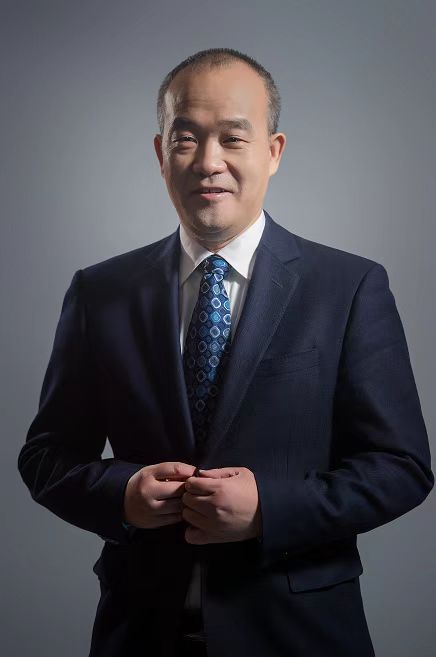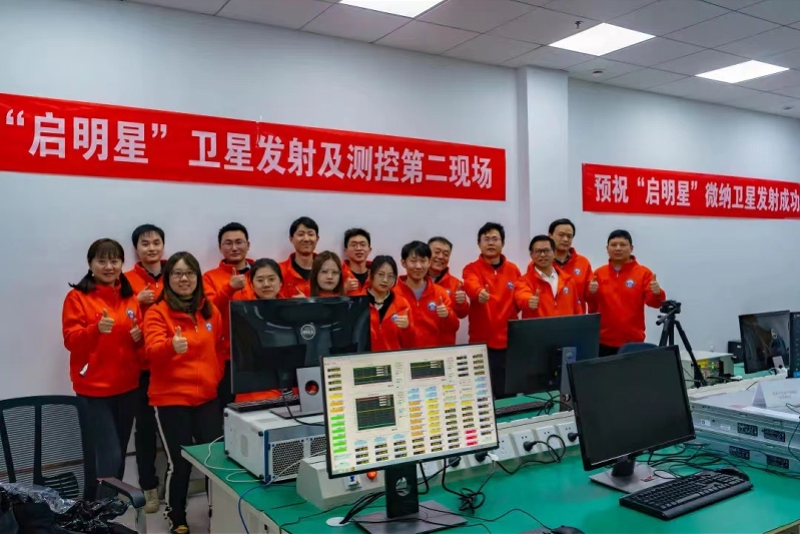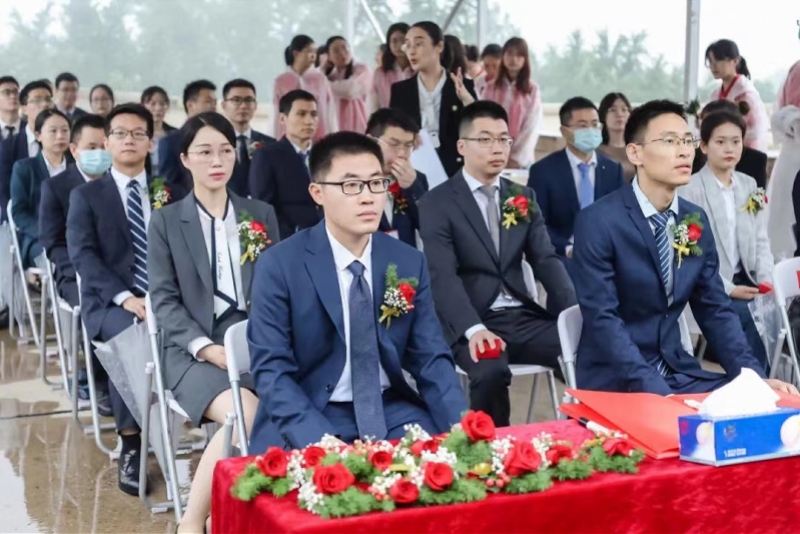In the second round of universities and disciplines included in the "Double First -Class Project" released by the Ministry of Education, Wuhan University (WHU) demonstrated its academic excellence with 11 disciplines included, seven of which were related to science, engineering and medicine. In late February, the successful launch of the first nanosatellite QMX-01 developed by WHU students also captured netizens’ attention. In a sense, these achievements are a footnote to the rapid development of WHU over the past five years.
Looking ahead to The 14th Five-Year Plan, President Dou Xiankang provided a new scheme for the development of WHU for the next five years: Building WHU into a top comprehensive university in China with a focus on philosophy and social sciences and with science and technology at the forefront of first-class disciplines, and with the ambition to pursue excellence and core strength. “In five years’ time, Wuhan University’s national-level faculty will exceed 1,000, and the total number of faculty and staff will also be reduced by 1,000”, said President Dou.
President Dou has always insisted that a world-class university should be a place with more talents, have a more vibrant academic atmosphere and a more efficient management system. In his words, “only in this way can first-class innovative talents be nurtured”.
During this year’s two sessions (the annual sessions of the National People's Congress and the National Committee of the Chinese People's Political Consultative Conference), the correspondent from Nanfang Metropolis Daily had an exclusive interview with Dou Xiankang, a deputy to the National People's Congress and the president of WHU. In the interview, President Dou once again shared his new thoughts on hot topics, such as university education, talent cultivation and graduate employment.

Dou Xiankang, a deputy to the National People's Congress, a member of the Chinese Academy of Sciences and the president of WHU
On talent cultivation: World-class universities should cultivate creators of new knowledge
Nanfang Metropolis Daily (hereafter Nanfang): Recently, the successful launch of the nanosatellite QMX-01 produced by WHU has attracted a lot of attention. More than 50 students from WHU have engaged in designing, developing and testing this project. How could they make such an achievement?
Dou Xiankang (hereafter Dou): The discipline of surveying, mapping and remote sensing of WHU, with its traditional academic advantages, has always taken first place in this research field in China. The more advantages the discipline has, the more attention we pay to its modernization. For example, the discipline of surveying, mapping and remote sensing has shifted its focus from software development in the past to high-tech systems at present. In 2017, we established the Institute of Aerospace Science and Technology for the special purposes of developing satellites and loading technologies with a primary task of cultivating the new generation of talent.
Since building satellites is a technical job, it is useless to merely copy previous results. Instead, it requires talent with the ability to conduct fundamental practical research. WHU has highlighted the development of fundamental disciplines in recent years, which has laid a solid foundation for student development. Cultivating top talent requires excellent teachers. Our distinguished faculty are highly aware of the cultivation of students, and our university also encourages more students to engage in scientific research on the frontline. As a result, it gives me great pleasure to see that many students from the School of Remote Sensing and Information Engineering, especially those from the National Key Laboratory, have engaged in key projects and made such achievements.

The second scene for launching, monitoring and controlling satellite QMX-01
Nanfang: You have also referred to the ideas of student cultivation, so in your opinion what kind of students should be cultivated at universities?
Dou: The fundamental task of universities is fostering moral character through education. A university can only become a world-class university when students are trained to become first-class talents.
After years of university development, it has been generally accepted at home and abroad that we should promote liberal education, which equips college students with fundamental knowledge. Innovative ideas can only be created through mastering fundamental knowledge, which is the purpose of university talent cultivation. A top university should always give priority to cultivating new knowledge creators, as the aim of China's "Double First Class project" is to promote the cultivation of more innovative and talented people in universities.
Nanfang: Many world-class universities have reached an agreement on cultivating innovative talent. But there doesn’t seem to be an obvious increase in our innovative capability, why?
Dou: A prerequisite for innovation is going beyond established knowledge. But it is a mission impossible to accomplish if researchers lack basic scientific literacy. Let me draw an analogy of playing soccer. A soccer player cannot master the “bicycle kick” if he or she cannot even kick well.
The cultivation of innovative talent is an ongoing process. Although the research foundation of our universities has been weak in the past, huge progress has been made in science and technology in recent years as China has achieved a growth in economic strength. We should get rid of the “paper-centric” criterion while papers of high quality are undoubtedly a recognized indicator to measure scientific and technological progress. In recent years, the number of papers written by Chinese scholars and published in leading journals such as Nature and Science only ranks behind that of the US. It demonstrates the rapid speed at assembling young Chinese talents and the great changes in the infrastructure of scientific research. Scientists cultivated after the Reform and Opening-up period all have an international perspective, and recently many young talented people have returned to China from abroad to work and start their business. At this stage, therefore, it is no longer an empty talk to advocate the cultivation of innovative talent.
Innovation always comes out of young people, which is evident in young WHUers who have made outstanding achievements in recent times. And there are growing possibilities to conduct innovative research that used to be rare in both WHU and other universities. I believe that the cultivation of innovative talent will reach a higher level in the future of China.
Nanfang: The latest data, revealed by the Ministry of Human Resources and Social Security, shows that the number of people in flexible employment has reached 200 million. The media also shows interest in the growing number of graduates who work in food delivery. What’s your take on these phenomena?
Dou: The rapid development of Chinese industry has set a higher demand for talents qualified in both technology and skills, motivating us to emphasize the acceleration of the development of modern vocational education. With a large population base in China, the number of students attending the National College Entrance Examination reached ten million, let alone those who don’t have a chance to enter high school. It is pretty clear that the goal of vocational education is to closely connect the front line of economic development to cultivate technical and skilled personnel, skilled craftsmen and craftsmen of large countries needed for social and economic development. If the country is to develop, this force is indispensable. And vocational education conditions should be further improved and enhanced.
Nanfang: Vocational education has always been low in quality, social recognition and salary. Many parents still prefer their children to go to college. How can we change this situation?
Dou: Vocational education and general education are two different types of education with equal importance. Real vocational education needs to transfer from referring to the school-running pattern of general education to the pattern with corporate and social participation, as well as spectacular professional characteristics. It should not be the second choice for students who cannot enter college.
Through vocational education, students can really learn to use the technology needed by society and become excellent technical and skilled talents. In the future, they can work in well-known enterprises such as Huawei and Xiaomi, and become technical elites in a certain field. Once the students earn a good salary and are respected by society, vocational education will naturally become popular.
At present, the construction of China's vocational education system is not perfect, and there is a serious shortage of "double-qualified" teachers with both theoretical teaching and practical teaching ability among the vocational education teachers. How many teachers in colleges are skilled craftsmen who come back from the production line? How many first-class enterprises are directly involved in vocational education? These two points are critical to vocational education, which means there’s still a lot to be done concerning it. As the demand for vocational education increases, it will in turn force supply-side structural reform. Reform requires a process, and it will take time for vocational school students to gain real skills and gain more respect from society.
On the "Double First-Class project": Universities should prioritize quality over quantity, and shouldn’t ignore liberal arts while promoting science
Nandu: At the beginning of February, the second list of universities and disciplines included in the "Double First-Class project" was released by the Ministries of Education. 11 subjects of WHU were selected, among which seven subjects are related to science, engineering and medicine. What do you think of such changes?
Dou: China has entered an era of scientific and technological strength. In such an era, WHU, a century-old university that has made outstanding contributions at some key historical points in the past, should not be absent. WHU has always stressed that it should be built into a first-class comprehensive university in China. I think if it is not strong in science and engineering, it will certainly fail to reach that goal.
In recent years, WHU has paid much effort to the development of science, engineering and medicine, and has emphasized the development of basic sciences, which is both a strategic need of the country and a development need of WHU. The physics, chemistry, mathematics and other disciplines of WHU have made great progress, and the technology-related disciplines have also witnessed rapid development. For example, the National Key Research and Development Program is a very important indicator to measure the competitiveness of universities in science and technology. Last year, ten of WHU’s national key research and development programs were approved, which has been a big increase compared to the past. And more than half of them were in natural science, physics, life science, chemistry and other basic disciplines, which from my perspective is what should be achieved by a comprehensive university.

May 26, 2021, introduction ceremony of WHU was held
Nanfang: Being a famous university online, WHU gives the impression that its liberal arts disciplines are the greatest. Does it mean that the liberal arts disciplines are lagging behind in recent years?
Dou: According to some important evaluation indexes, such as major projects in philosophy and social science aspects, Humanities and Social Sciences awards of the Ministry of Education, WHU is still the leader among Chinese universities, and the development trend of liberal arts is steadily rising.
In the released list, WHU's traditional prominent disciplines, including law, Marxist theory, theoretical economics, library information and archives management, continue to be listed.
About half a month ago, I put forward a clear goal in the winter holiday guideline discussion meeting held by the university, indicating that WHU should be built into a top comprehensive university in China with strong core strength and determination to pursue excellence, which is good at philosophy and social sciences, and ranks among the top disciplines in science and engineering.
High technology and social science are equally important to the country. Especially in the face of profound changes unseen in a century, we must continue to develop philosophy and social sciences with Chinese characteristics. This is a long-term endeavor concerning the great rejuvenation of the Chinese nation. In WHU, there are not only a wide range of subjects such as archaeology and study of bamboo and silk documents, but also cutting-edge studies such as digital economy, international law and cross-cultural communication, which are deeply loved by students.
Nanfang: After the release of the second round of the "Double First-Class Project" list, the Ministry of Education explicitly named some universities that previously focused on the expansion of scale and the pursuit of upgrading, but did not achieve differentiated nor distinctive development. What do you think of this phenomenon?
Dou: I am definitely opposed to blindly expanding scale and pursuing an upgrade. Before coming to WHU, I worked at the University of Science and Technology of China, whose size may not be large but with obvious strength. These days, I accidentally found a PPT made more than ten years ago. It was about my views on higher education, which have not changed until now: I always believe that the scale of a university must be appropriate, and quality must take precedence over quantity. The Ministry of Education also stressed that the "Double First" construction should focus on differentiated development as well as distinctive development.
There is a sentence from WHU: We should do what we can do well, not what we can't do well. We must clearly distinguish which are the dominant disciplines, which are temporarily weak disciplines, which are emerging disciplines needed by the country, and which are favored by students. Different disciplines should design different development directions, thus finally achieving differentiated development and distinctive development.
About the development of WHU: Implement the "Double Thousand" plan over the next five years, and reduce the number of faculty and staff
Nanfang: In 2017, WHU once proposed the goal of "strengthening the university with talents". What is the effect after five years?
Dou: In recent years, the university has achieved remarkable results in implementing the strategy of "strengthening the university with talents". The growth rate of the number of young talents has been particularly fast in the past five years with the number of "national brand" talents of the university increasing from 238 to 649. And these outstanding young people at home and abroad have laid a foundation for the rapid improvement of teaching and research.
Last year, the alumni Chen Dongsheng donated 1 billion yuan, which has been the largest amount of alumni donation in the history of WHU. This amount of money will be completely used for the construction of the talent team in the future, vigorously cultivating talents in the university and introducing a number of talents from home and abroad. Recently, WHU also put forward the "Double Thousand" plan to achieve the number of "national brand" talent breakthrough set at one thousand and to reduce the total number of teaching and administrative staff by one thousand over five years.
If the plan of "losing weight to make one stronger" is finally realized, the number of talents can be increased by another 40% to even 50%, and the total number of faculty can be decreased by another 20% to 30%. The teaching and research team of WHU will be leaner and more vigorous, and the management will be more efficient.
Nanfang: "losing weight to make one stronger" means some people will be eliminated. How will this be carried out?
Dou: On the one hand, a certain scale of faculties will resign in the future, stepping back from the frontline teaching team; on the other hand, we will tighten the standard of recruitment. Previously, WHU implemented the "Three plus Three" recruitment period system for teachers, which aroused a lot of people's concerns. Some people thought it was too strict, but I always believe that in order to build a world-class university, it is necessary to introduce real talents according to this standard. In recent years, our standards have been gradually improving, requiring stricter recruitment in the process of replacement. The university needs younger, more energetic and more excellent researchers, teachers and administrators. Only in this way can students be trained better, which is the development goal of the university for the future.
Rewritten by Wang Qinyuan and Liang Keke
Edited by Qin Shihan, Zou Xiaohan